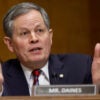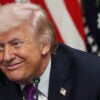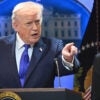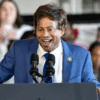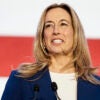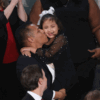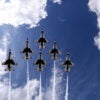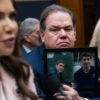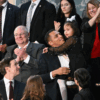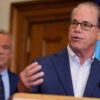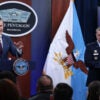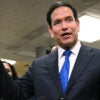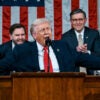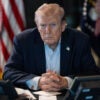One of the unhappy truths of life is that you can get a pretty good idea of your power and popularity by the number of invited—even more so, uninvited—guests who show up at your personal party.
The same might be said of international diplomatic meetings.
So you can imagine how Team Obama must feel about the news that this week’s U.S.-Gulf Cooperation Council summit held at the White House and Camp David would be sparsely attended by the invited heads of state.
“Sparsely” may be putting it generously.
Indeed, it’s been reported that only two of six leaders of the Gulf council’s member nations—which include Saudi Arabia, United Arab Emirates, Kuwait, Bahrain, Oman and Qatar—attended the prez’s confab to discuss security matters, including possible defense cooperation and arms sales.
Only Qatar and Kuwait are sending their heads of state.
That level of RSVP is especially curious since a POTUS “party” is usually one of the most sought-after, “A-list,” gold-embossed-envelope invites, whether at home or abroad.
Or at least it was.
Some of the Gulf leaders have made their excuses—all entirely plausible, of course—such as health concerns or pressing issues at home, and have made plans to send senior subordinates to the meeting.
As the most powerful of the invitees, the absence of new Saudi King Salman is particularly conspicuous.
His representatives said he needs to be in Riyadh during a five-day cease-fire in the Saudi-led war in Yemen; in his stead, he has dispatched his No. 2, Crown Prince Mohammed bin Nayef, who is also interior minister, as well as the king’s son, Deputy Crown Prince Mohammed bin Salman, who is defense minister.
While the Saudis insist the king’s absence isn’t a snub to the president, no matter what the various official spokespeople say, perception is reality, right?
It gets “curiouser and curiouser” when considering the state of affairs in the Middle East and how the Gulf council’s leaders might have perceived some benefit from pressing the flesh of the American president.
So what gives?
One thing that’s clear is the invitees don’t see the meeting with the president as worthwhile. Unfortunately, that says a lot about how the United States is currently viewed by its Gulf partners.
The Gulf states are also—without question—sending a strong signal our way about their level of dissatisfaction with American policies in the Middle East.
Nothing expresses disapproval of your host like a “no-show” at his party.
The Arab leaders are, of course, worried about an Iranian nuke deal; no better time than now, as critical talks take place in Vienna, to show concern, and to remind Washington that it had better deliver on any deal with Tehran.
They are also pretty darn unhappy about the unfolding Iraq-Syria-Islamic State disaster.
After four-plus years, Syria’s Bashar Assad is still in power; some 200,000 are dead; the Islamic State is a growing threat; Iran is deeply involved in both Iraq and Syria; and the U.S. effort seems to be less than, shall we say, “urgent.” We could also add Yemen and Libya to the list of unpleasantries.
What this all means is the highly-touted summit will probably be mostly a bust. That’s not good news for our interests or the prospects of peace and stability in the roiled region.
Originally published in the Boston Herald
